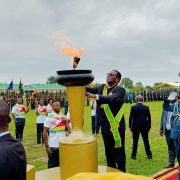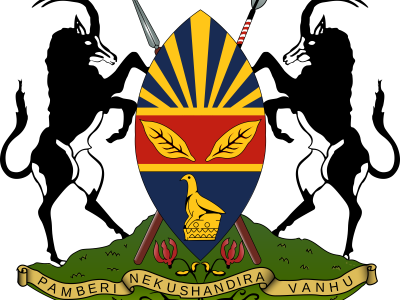Apparently, the country’s agricultural flagship, Pfumvudza, is a Western backed farming concept mainly supported by Britain through UK Aid.
The United Kingdom in partnership with the government of Zimbabwe is currently supporting local farmers through Pfumvunza and Intwasa revealed the UK.
In an interview with a UK Aid personnel who commented on the condition of anonymity said through partners like LFSP and ZRBF, the UK supports farmers to grow more nutritious, climate-resilient crops, using techniques like water harvesting, Pfumvunza and drip irrigation.
“Livelihoods and Food Security Programme (LFSP) piloting Pfumvudza and agroecological practices achieved an average of 6 tonnes, 18 times better, with those who applied sufficient mulch achieving over 12 tonnes 36 times better and last season Zimbabwe’s communal smallholders achieved average maize yields of just a third of a tonne per hectares.,”
However, when you hear the government of Zimbabwe particularly members from the ruling party ZANU PF denouncing the Western countries you would think they will never say yes to any form of assistance from the countries they continuously accuse of instigating pain among the local people.
You would think Zimbabwe and her people operate in a vacuum and doesn’t need any form of help from these countries.
Yet as a country we largely depend on their ingenuities and financial support.
The United States of America has contributed more than $3.5 billion since independence to the people of Zimbabwe.
Zimbabwe’s former colonizer, Britain, on the other hand, contributed hugely to the development of the people of the Southern African country.
Pfumvudza is a farming concept that is aimed at climate-proofing agriculture by adopting conservation farming techniques and involves the utilisation of small pieces of land and applying the correct agronomic practices for higher returns.
The programme is currently benefitting more than 2.4 million smallholder farmers in the country mainly those in Region 4 and 5.
Under the programme 1, 6 million households are expected to contribute 1, 6 million tonnes of maize towards strengthening the Strategic Grain Reserve (SGR) while 800 000 households are expected to produce between 90 000 and 100 000 tonnes of soya.
According to the 2017 Inter-censal Demographic Survey (ICDS) produced by Zimstat, there are three million households in Zimbabwe, with about 1,8 million of these households being rural.
If each rural household, at the minimum, produces on one Pfumvudza plot, Zimbabwe will be assured of 1,44-1,80 million tonnes of maize from rural farmers, producing an excess of 475 000-600 000 tonnes per year, based on the fact that according to the ICDS, a household is an average of four members.
“Thanks to nature-based farming solutions, saving in groups, and links to local markets, many farmers have seen bigger harvests and more income,”
“UK also supports access to labour -reducing technologies-like two-wheeler tractors and multi-grain threshers-and solar-powered equipment-like incubators and driers which are then marketed by community-based groups often giving them an extra source of income,”
“Groups like Foundations for Farming ad Fambidzanai and other NGOs, CSOs, Universities and farmers in Zimbabwe have been practising and promoting Pfumvunza and agroecology in isolated pockets of the country for decades,” said the source
However, there were concerns among some farmers that the government-run programme was not providing enough inputs such as seed and fertilizer.
Typically, the government, which has run programmes such as the presidential inputs Scheme for rural poor, has failed to provide enough resources and oversight.








Comments